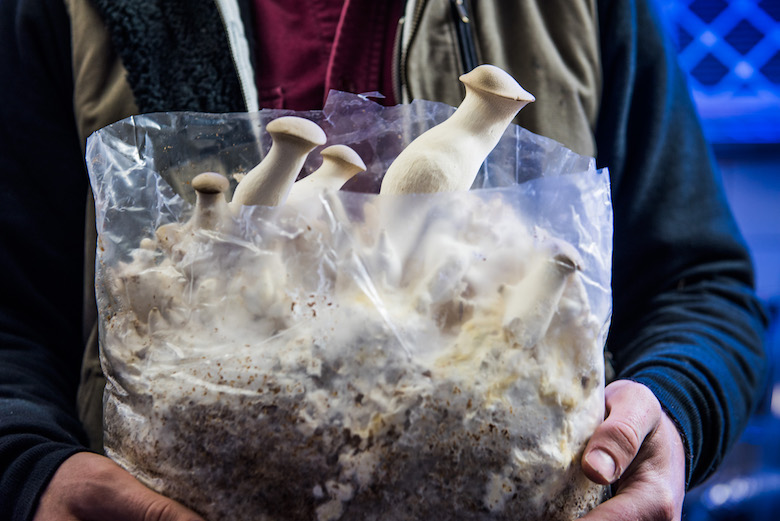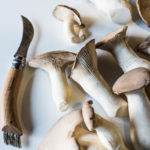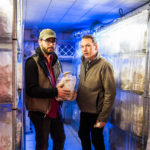
Editor’s note: We kicked off our first annual Food Loves Tech event last summer in Chelsea—here’s a recap. We’re bringing a taste of the food and farming future back this year, but just across the East River at Industry City. Leading up to the event, this story is part of an ongoing series about technology’s effects on our food supply.
Off a dead-end industrial street in Bushwick is the soon-to-be home of three 40-foot shipping containers that might just redefine farm-to-table dining.
Come spring the shipping containers will be the headquarters of Smallhold Labs, a distributed farming start-up founded by Andrew Carter and Adam DeMartino, that wants to make local food more affordable for restaurants and supermarkets.
“It’s tough being a small farmer, we created this company using technology and new distribution model to alleviate that,” Carter said. “We developed the technology and the distribution to make urban agriculture more feasible in the city.”
It works almost as a nursery. Smallhold grows the produce, which right now is about 100 pounds of mushrooms a week (they eventually want to do leafy greens and herbs, too). Once the mushrooms are three-quarters grown they distribute them in “minifarms” or 100 percent climate-controlled vertical farms about the size of a bookcase that are outfitted with WiFi and hook up to a water supply. Smallhold growers back at headquarters can monitor and adjust the lighting or water circulation in the chamber from afar. Restaurant chefs or supermarkets just need to pick the produce when it’s ready giving them all the benefits of a farm without most of the work.
“After learning about the produce and tasting it we had to use them,” chef and co-owner of Bunker Vietnamese Jimmy Tu said.
Bunker, which recently moved into the cultural space next door to Smallhold Lab, is one of a number of restaurants including Agern using Smallhold mushrooms. You can taste Smallhold’s king oyster and shiitake mushrooms in dishes such as Bunker’s vegan summer rolls and vegan bánh mì among other dishes.
“We like the idea of the sustainability and the end product is amazing,” Tu said.

Coming from a commercial agricultural background, Carter knows how expensive it can be to grow and distribute local farm. The Smallhold model system cuts waste in terms of packaging, which, in addition to the environmental benefits, cuts the price.
Currently Smallhold visits its minifarms twice a month to replenish it, but the goal is to eventually ship the product directly as often as needed at which point the restaurant or market would plug it in and Smallhold would monitor it remotely.
“We’re the farmer; we just want them to open up the thing, pick the mushrooms and be able to use them.”






